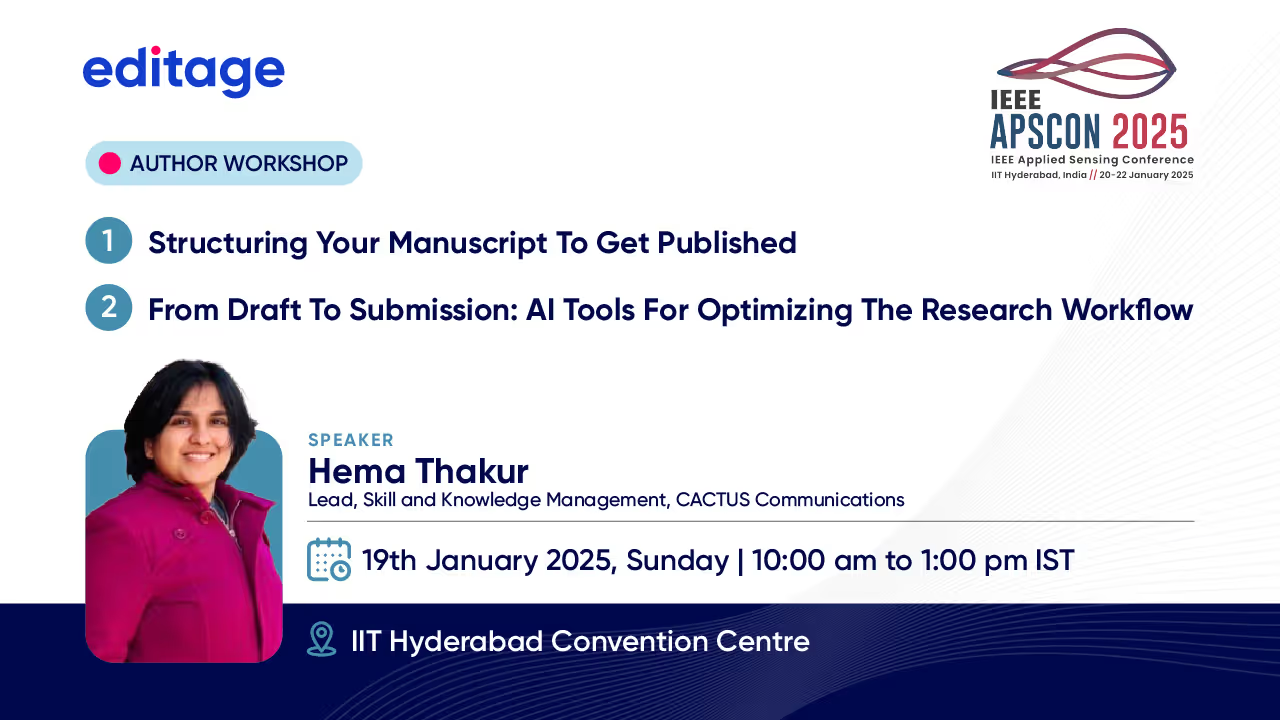Hema has an educational background in banking and finance, and she is an Alumni Ambassador for the University of London. She has been with Editage for over 6 years. Having started out as an editor herself, she comes with years of experience in editing and reviewing manuscripts from a wide spectrum of fields in the Humanities; she is also on the Board of Editors in the Life Sciences (BELS). She has authored articles for Editage Insights and worked in the Client Service department of Editage, where she was responsible for assessing the quality of edited manuscripts, communicating with clients, and implementing strategies to improve our deliverables. As a part of her current role, she has mentored and trained several senior editors as well as reviewers, many of whom have gone on to play important roles in the Editing team. She has also conducted webinars for groups such as translators and students pursuing their masters, interviewed a professor from the London School of Economics, created content for animated video tutorials and podcasts, managed knowledge-sharing initiatives in the organization, and garnered feedback such as the following from her audience: Really helpful and it is a good way to learn from the experienced people. I absolutely loved it. The video really was perfect in every way for me as far as length, content, and relevance. I especially appreciated that suggestions were given for commenting changes to the author. Highly instructive and provided relevant and useful insights.




